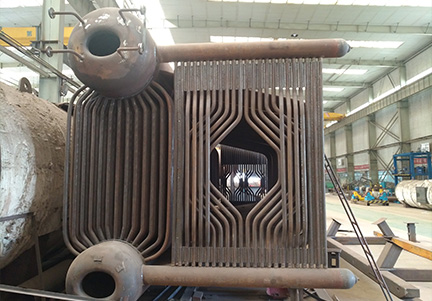thermal oil circulating boiler products
The Advantages of Thermal Oil Circulating Boilers
Thermal oil circulating boilers have gained considerable popularity in various industries due to their unique ability to provide high-temperature heat transfer fluids with consistent and efficient performance. Unlike traditional steam boilers, thermal oil boilers use a heat transfer fluid that remains liquid at high temperatures, which allows for greater flexibility in heating applications. This article will explore the functionality, benefits, and applications of thermal oil circulating boilers.
How Thermal Oil Circulating Boilers Work
At the core of a thermal oil circulating boiler is a closed-loop system that facilitates the circulation of thermal oil. The process begins when the thermal oil is heated by burning fuel (such as natural gas, oil, or biomass) within the boiler. The heated thermal oil circulates through pipes to various heat exchangers where it transfers its heat to the desired processes or equipment. After releasing its heat, the cooled thermal oil returns to the boiler to be reheated, thus maintaining an efficient cycle.
One of the significant advantages of thermal oil systems is the ability to achieve elevated temperatures without reaching high pressures. This characteristic makes thermal oil ideal for applications requiring temperatures up to 400°C (752°F) or even higher, without the risk of steam explosion or the complexities associated with high-pressure steam systems.
Benefits of Thermal Oil Circulating Boilers
1. Efficiency Thermal oil circulating boilers are known for their energy efficiency. The ability to transfer heat effectively with minimal loss means that industries can achieve optimal performance while reducing fuel consumption and operating costs.
2. Safety Operated at lower pressures compared to steam systems, thermal oil boilers significantly enhance workplace safety. The reduced risk of explosive situations and equipment failure allows for safer operations in environments where high heat is necessary.
3. Versatility The adaptability of thermal oil to various heating applications makes these boilers suitable for a wide range of industries. Whether in food processing, chemical production, or textile manufacturing, thermal oil systems can be designed to meet specific temperature and processing needs.
thermal oil circulating boiler products

4. Reliability With fewer moving parts compared to traditional boilers, thermal oil circulating systems often require less maintenance and exhibit high reliability. This translates to reduced downtime and enhanced productivity for businesses, as consistent heating is crucial for seamless operations.
5. Environmental Benefits Many modern thermal oil boilers are designed with environmentally friendly features, such as emissions control systems and the capability to utilize renewable energy sources. This aligns with global initiatives to reduce carbon footprints and meet regulatory standards.
Applications of Thermal Oil Circulating Boilers
Thermal oil circulating boilers find applications across various sectors
- Chemical Industry Many chemical processes require precise temperature control, making thermal oil boilers a preferred choice due to their ability to maintain stable temperatures without high-pressure steam. - Food Processing In the food industry, processes such as frying, drying, and pasteurization rely on efficient heating. Thermal oil systems deliver the necessary heat while adhering to stringent safety and hygiene standards. - Pharmaceuticals Thermal oil offers precise temperature control in pharmaceutical manufacturing, ensuring the integrity and efficacy of medications and products. - Textiles In textile manufacturing, processes such as dyeing and finishing require specific heat applications, easily managed by thermal oil circulating systems.
- Renewable Energy The increasing integration of thermal oil systems in solar energy applications showcases their potential in harnessing renewable energy for heat production.
Conclusion
Thermal oil circulating boilers represent a significant advancement in industrial heating technology. Their efficiency, safety, versatility, and reliability, coupled with the ability to meet high-temperature demands without the complications associated with steam, make them an invaluable asset across various industries. As businesses continue to seek sustainable and efficient heating solutions, the role of thermal oil circulating boilers is likely to expand, contributing to both operational excellence and environmental responsibility.
-
Top Electric Steam Boiler Manufacturers - High Efficiency SolutionsNewsJul.30,2025
-
Top Electric Steam Boiler Manufacturers – Efficient Industrial SolutionsNewsJul.29,2025
-
Top Electric Steam Boiler Manufacturers | Reliable Industrial SolutionsNewsJul.29,2025
-
OEM Steam Boiler Solutions for Custom Needs | High Efficiency & VersatilityNewsJul.29,2025
-
High-Efficiency Thermal Oil Boiler for Industrial Heating SolutionsNewsJul.29,2025
-
Top Electric Steam Boiler Manufacturers for Industrial EfficiencyNewsJul.28,2025

